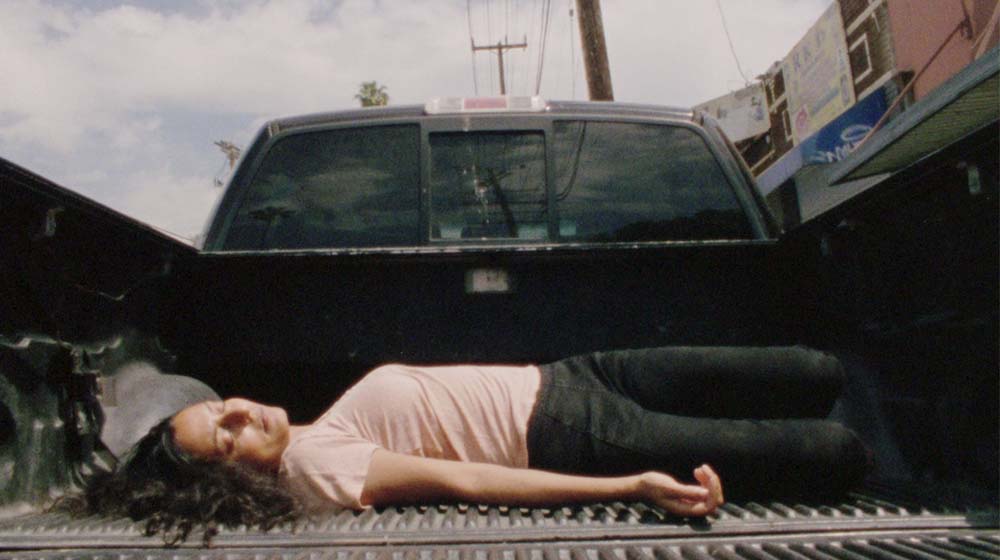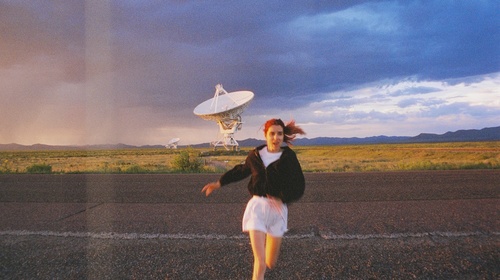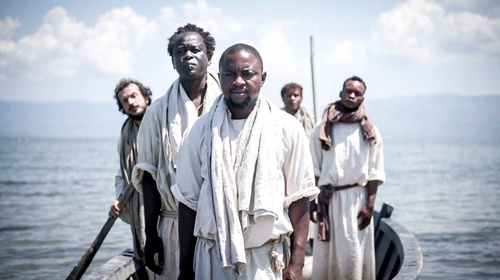Xcèntric 2022
First Person Plural
With the presence of Laida Lertxundi.
Audiovisuals
With films by Joyce Chopra and Claudia Weill, Maïder Fortuné and Annie MacDonnell, and Laida Lertxundi, also the programmer of the session, this programme points out that first-person or autobiographical narratives never belong exclusively to the subject narrating them but to a wider collective, and does so by exposing the complex relationships and links between people and landscape/city, between collaborators, between mother and baby, between teachers and pupils, between the self and the unconscious.... ties that define and expand us towards a porous self.
Borrowing its title from a literary genre, the film Autofiction acknowledges the indeterminate nature of both fiction and self. Elements of film noir intermingle with performative gestures in the California sunlight. On-site recordings made in New Zealand are heard as the women talk to each other about motherhood, abortion, break-ups and anxiety. Bodies appear in states of exhaustion, wounded or at rest, while songs by Irma Thomas and Goldberg evoke the passage of time and an uncertain future.
A pioneer of the direct cinema documentary movement in the United States, Joyce Chopra decided to make a film, Joyce at 34, to portray her pregnancy, the birth of her daughter Sarah, the postpartum period and the subsequent juggling of her work as a filmmaker with motherhood. Shot on 16 mm film among other works, this observational documentary provides a candid look at the trials and tribulations that, according to the filmmaker, "we are definitely still going through 50 years later".
In Communicating Vessels, a teacher narrates, through a voiceover, the story of a particular student named E., an eccentric young woman whose conceptual performances and unique experiences cause the teacher to begin blurring the edges of her own self. Combining fiction, personal anecdotes and monologues, and mixing teaching with art making, the film explores how we affect each other, sometimes in disturbing ways.
Inner Outer Space, Lertxundi's first film since her return to the Basque Country, is a triptych made up of three independent but interrelated pieces: "Teatrillo", "Inner Outer Space" and "Under the Nothing Night". In this, a group of people carry out a series of sensorial exercises that include telepathic conversations, blindfolded walks and plein air drawings. Like all of Lertxundi's work, Inner Outer Space is a film about relationships - between people, between people and landscape and between image and sound - but above all it's a deconstruction of production processes that highlights their artificial nature and examines the materiality of making and doing. A brief meditation on ideas located between interiority and ecology, the individual and the communal.
Autofiction, Laida Lertxundi, Spain, New Zealand, United States, 2020, 35 mm, 14 min.
Joyce at 34, Joyce Chopra and Claudia Weill, United States, 16 mm to digital, 1972, 27 min.
Communicating Vessels. Maïder Fortuné and Annie MacDonnell, Canada, France, 2019, digital, 30 min.
Inner Outer Space, Laida Lertxundi, Basque Country, 2021, 16 mm, 16 min.
35 mm screening of Laida Lertxundi’s films and digital projection of Joyce at 34 and Communicating Vessels. Copies of Laida Lertxundi from LUX. Copies of Joyce at 34 and Communicating Vessels courtesy of the authors.
Directors: Laida Lertxundi, Joyce Chopra, Claudia Weill, Maïder Fortuné, Annie MacDonell
This activity is part of Xcèntric 2022


